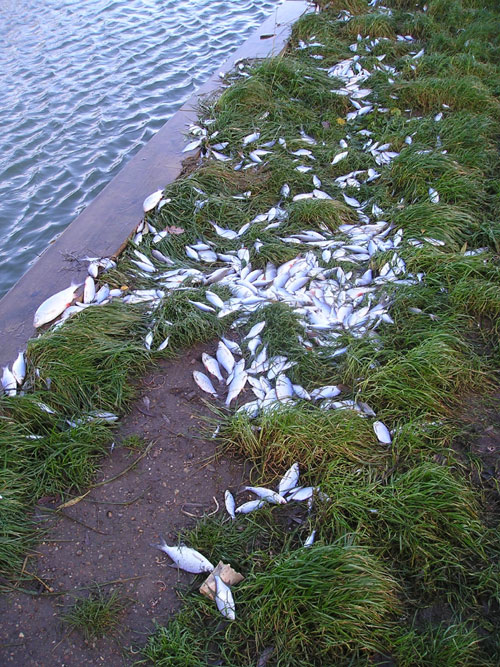The Norfolk Broads has suffered one of the worst incidents of fish deaths from natural causes in the last 15 years.
The Environment Agency estimates that 10s of thousands of fish have died due to saltwater coming up the
“With the co-operation of Herbert Woods Boatyard at Potter Heigham, the Agency has raised the fish barrier to protect thousands of fish that over-winter in the boatyard area. However, from our initial investigations, it appears that many fish may have stayed lower down the rivers closer to the sea, because of the unseasonally warm weather we have had. This means that they were caught out when the sudden rush of seawater entered the

“Because of the strong wind, seawater from the tide could not go back out to sea again, causing salt levels in the rivers to rise dramatically, killing the freshwater fish,” explained Alison Bramwell.
Ms Bramwell continued, “We are still assessing the full extent of the problem and are doing everything we can to help, but a huge number of fish are affected. The forecast is for the wind to remain a north-westerly but not so strong, so we’re hoping the seawater will be able to leave the
The Environment Agency can track the progress of saltwater via its monitoring network and thanks to the co-operation of landowners and boatyards, has been able to save hundreds of thousands of fish in the past. In February this year, again with the cooperation of Herbert Woods boatyard, the Environment Agency was able to raise the barrier in time to save thousands of fish that were over-wintering at the boatyard.






